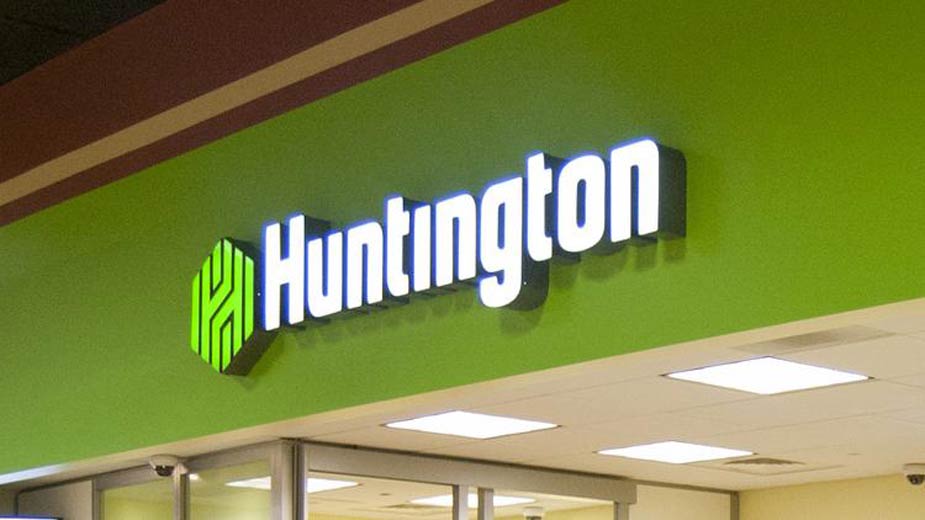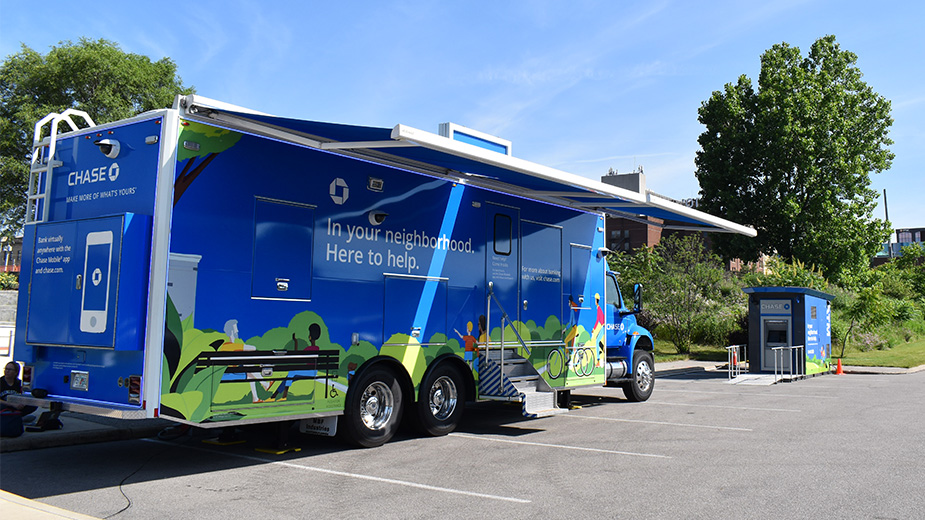Banks Teach Adults Financial Literacy
YOUNGSTOWN, Ohio – Opening a bank account is the first step into a world of finance and credit, which can eventually lead to owning a home, launching a business or being able to retire comfortably. But what happens when you’re not able to open an account in the first place?
In its 2017 national survey of unbanked and underbanked households, the Federal Deposit Insurance Corp. found 32.6 million American households were either unbanked, meaning no one in the house has a checking or savings account, or underbanked, meaning they used financial products outside of banks, such as payday loans, rent-to-own services or check cashing services.
Such households, the survey found, have lower incomes than their banked counterparts and have less access to credit.
In some cases, area bankers say, potential clients will come in looking to open an account, only to find that previous accounts are in arrears and they have been flagged by the national ChexSystems database. When that happens, many financial institutions will bar them from opening new accounts, while others offer limited services.
“Imagine having to go through life, you’ve been turned down for bank accounts and now you have nowhere to cash a paycheck or no card to use for groceries,” says Amber Wallace, chief retail and marketing officer for Farmers National Bank, Canfield. “Think of how much education you got on day-to-day finances in school. How much were you taught about managing finances in college?”
In terms of content, the financial literacy programs local banks and credit unions offer to adult clients don’t differ too much from what students get through the institutions’ classroom work with groups like Junior Achievement.
For those who are unbanked, the banks offer education on budgeting, sensible spending, credit and the other financial fundamentals. The biggest difference between what’s available to students and adults, however, is often that the adult education allows them to take advantage of the services they’ll be using, albeit at a limited rate.
Premier Bank, formed through the merger of Home Savings Bank and First Federal Bank of the Midwest, offers its Access Checking account for entry-level customers who don’t meet the criteria for a full account.
With a $100 daily withdrawal limit and a $300 daily spending limit, the account acts as “a training campus” for such customers, says Lee Fields, the bank’s community development officer.
“Knowledge is power, particularly in the financial world. You need to know why it’s important to save or to budget and the difference between needs and wants or how to keep a checkbook balanced,” he says. “It’s a little restrictive, but … it’s a way of getting people used to having an account and a relationship with the bank. This prepares them for a regular account where they can do anything and everything.”
Farmers, meanwhile, offers its Fresh Start account that includes access to debit cards, checks and a deposit account – though with spending limits, similar to Premier’s Access Account – alongside financial education with bank staff.
“Once they have this, we work with the customer for a period between one and two years. They work with our universal bankers and branch managers to develop the skillset they need to keep the account from going into arrears,” Wallace says. “We do a lot of face-to-face discussions and check-ins to help them manage this new account. If everything goes well, we graduate them to a regular checking account.”
Once clients have their accounts in order, financial institutions have a wider array of services available to guide them toward their goals, whether it be buying a home, starting a business or saving for retirement. Through online platforms, the banks and credit unions are able to tap into financial education courses from national organizations.
717 Credit Union, based in Warren, requires all first-time homebuyers to complete a short course on the process available through Knowledge of Financial Education, or KOFE, before moving into the final stages of mortgage lending, says Eric Lanham, the credit union’s vice president of marketing. KOFE also has courses, podcasts, blogs and webinars on everything from the impact of COVID-19 on personal banking and building a budget to debt relief and saving for a wedding.
“When we see folks struggling with credit issues or those kinds of things, there are also other modules available to them that we can recommend to help them gain some education and pointers on how to manage their finances,” Lanham says. “If those modules don’t give them enough, they also have free access to certified financial counselors that can talk to them and dive a little deeper to address the specific questions they might have.”
While bank staff and leadership often volunteer with Junior Achievement or United Way to teach financial literacy in schools, they’re also a key part of providing that education to adults. At Mercer County Community Federal Credit Union, members can talk at virtually any time with two of the credit union’s certified financial counselors.
“If a student has graduated and is getting ready to go off to college or buying their first car, they can talk to a counselor who guides them through everything they need to know to make sure they’re making the right decisions and don’t end up burdened with debt at an early age,” says Sandy Carangi, CEO of the credit union based in Hermitage, Pa.
To make the resources further available, some banks have instituted workplace financial education programs for clients, though many have been suspended because of the COVID-19 pandemic.
PNC, however, has made three of its courses available as videos, says Lisa Kowalski, the Pittsburgh-based bank’s workplace banking senior business development manager. Currently available are courses on identity theft and protection, children’s finance and the “sandwich generation” – adults who find themselves caring for both their children and parents.
“When you have obligations for taking care of your parents and your kids, throw in work stress, household expenses, relationships, you end up sandwiched between everything,” Kowalski says. “Only about 10% of adults are prepared to be a parent caregiver, which can add on to that emotional and financial stress.”
PNC is working on adding more virtual classes to its workplace education lineup, she adds. When in-person courses were the norm, topics also included Social Security, credit repair, investing and other foundational classes. And if business clients or their employees had questions that went beyond the scope of the course, Kowalski’s staff could then direct them to PNC’s other divisions, such as PNC Wealth Management for more in-depth answers on investment portfolios.
“They can answer questions that are above my pay grade, so to speak. They’re the ones who can provide directions that go above and beyond to help individuals hit their goals or get on the right track,” Kowalski says.
Cortland Bank is working on adding a digital version of its seminars for first-time homebuyers, says Julianna Begalla, marketing, communications and investor relations officer. The bank usually hosts three seminars a year led by retail mortgage banking officer Mark Chuey, but the pandemic has put those on hold. The digital version would be paired, Begalla says, with the rest of Cortland Bank’s online offerings, which includes the EverFi education platform and blog posts by bank staff.
“We want people to be able to get the information when they need it most. They may be looking at their bank statement at 2 in the morning, thinking about how they’ll budget for the next month. This way, they can find information on our website and get through it in five to seven minutes,” she says.
As a community bank, Cortland Bank looks to invest in the areas it serves, Begalla continues. It’s a point mentioned by all the bankers. Having nearby residents – whether they’re customers or not – who have a sound financial education can lead to healthier communities, they agree.
“It’s important to provide that education because the more stable their finances are, the more stable their life is likely to be,” Begalla says. “We want to affect that positive change in the communities we serve. You can maintain your budget and financial goals and be planning rather than reacting.”
Copyright 2024 The Business Journal, Youngstown, Ohio.


